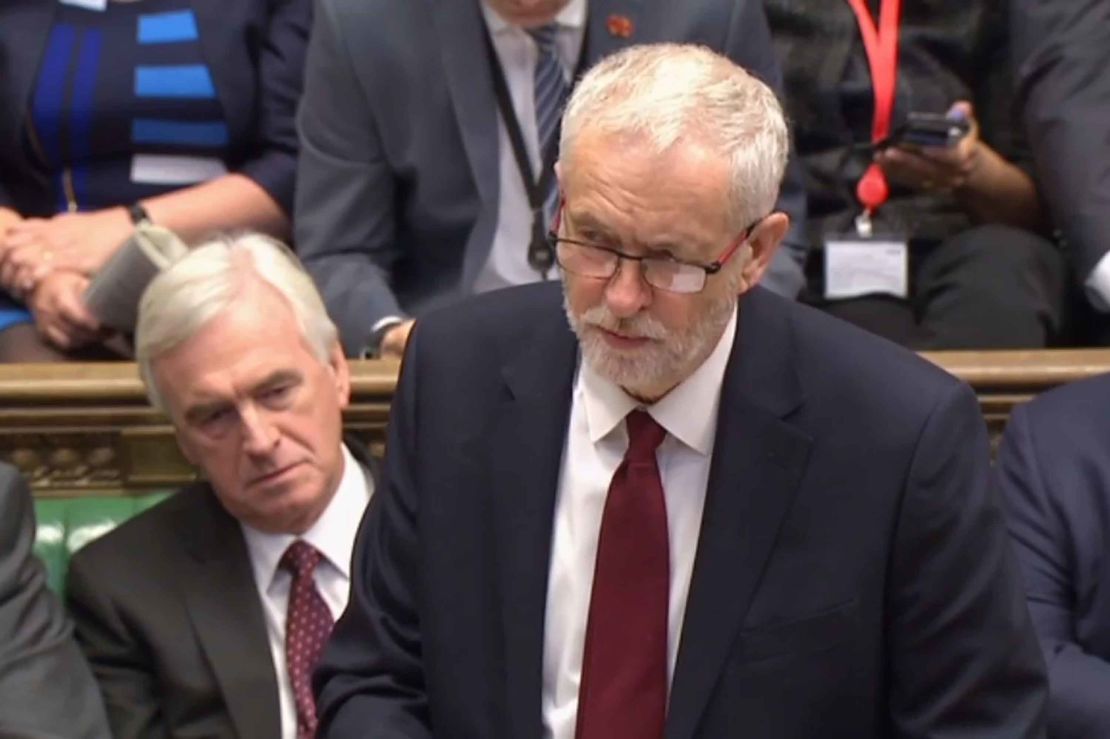Story highlights
"Mugwump" can mean someone undecided in politics or bolters from the Republican party in 1884
The word was used in the Harry Potter books for the head of a wizards' confederation
British Foreign Secretary Boris Johnson stepped into the UK election fray Thursday with an editorial describing Labour leader Jeremy Corbyn as a “mutton-headed old mugwump.”
Johnson has long been known for his outspoken views and colorful use of the English language. But this very personal attack on Corbyn, in a column for the UK’s Sun tabloid newspaper, was the Conservative politician’s first direct foray into campaigning for the June 8 snap general election and came after UK political commentators had noted his low profile.

Mugwump?
To save you reaching for the dictionary, Merriam-Webster (which featured mugwump as its word of the day just last November,) gives two definitions: “a bolter from the Republican party in 1884” and “a person who is independent (as in politics) or who remains undecided or neutral.”
The dictionary’s website also notes that “Mugwump is an anglicized version of a word used by Massachusett Indians to mean ‘war leader.’ The word was sometimes jestingly applied in early America to someone who was the ‘head guy.’”
It continues: “The first political mugwumps were Republicans in the presidential race of 1884 who chose to support Democratic candidate Grover Cleveland rather than their own party’s nominee. Their independence prompted one 1930s humorist to define a mugwump as ‘a bird who sits with its mug on one side of the fence and its wump on the other.’”

Fans of J K Rowling’s Harry Potter novels will know that the “supreme mugwump” is also the title of the head of the International Confederation of Wizards, a role filled at one time by Hogwarts’ headmaster, Professor Albus Dumbledore.
Johnson: Corbyn is a threat
In his column, Johnson describes Corbyn as a “threat” and urges readers to fight any “pang of sympathy” they may feel for him, in the face of the challenges posed by Russia’s disruptive actions, North Korea’s nuclear ambitions and extremist group ISIS.
On June 8 there will essentially be a choice between two Prime Ministers, May or Corbyn, he says, adding: “It is absolutely vital for Britain’s security that we have the strong, stable and decisive leadership of Theresa May.”
Johnson also sounds a warning note over Britain’s impending exit from the European Union, saying Labour has no clear policy. “Corbyn’s approach would be a recipe for paralysis and uncertainty – and for Britain to get totally stiffed in the negotiations,” he says.
Corbyn fans: Thanks for the compliment
Its his use of the little-known term mugwump, though, that has people talking.
Corbyn supporters picked up on the older meaning of the word, with the unofficial campaign group Jeremy Corbyn for PM tweeting: “So the word ‘Mugwump’ originates from ‘Great Chief.’”
Others noted that what Johnson presumably intended as an insult could be seen by Harry Potter readers as a compliment.
In a BBC Radio 4 interview, Labour’s shadow housing secretary John Healey dismissed Johnson’s comments as schoolyard “name-calling,” adding: “I think it demeans the position of Britain’s foreign secretary and I’d say to him … on a serious point, don’t attack the person, debate the policies.”





